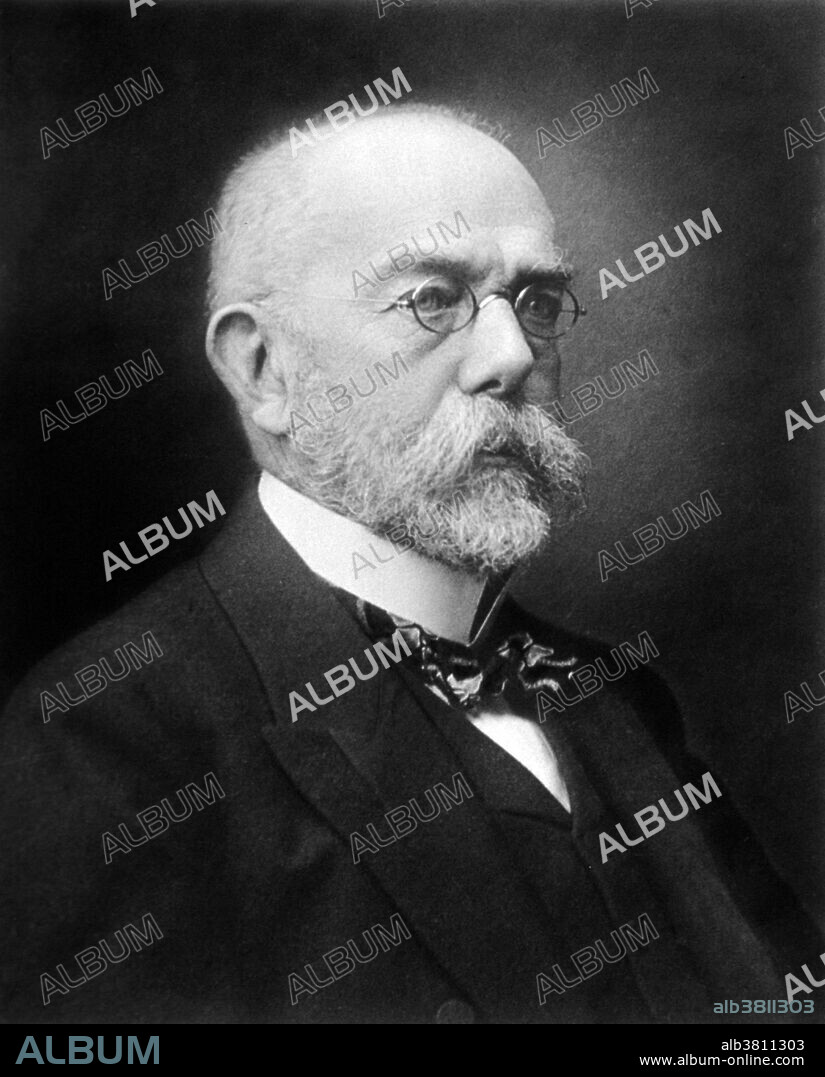alb3811303
Robert Koch, German Microbiologist

|
Añadir a otro lightbox |
|
Añadir a otro lightbox |



¿Ya tienes cuenta? Iniciar sesión
¿No tienes cuenta? Regístrate
Compra esta imagen

Título:
Robert Koch, German Microbiologist
Descripción:
Ver traducción automática
Robert Koch (1843 - 1910), German scientist who was one of the two founders (with Pasteur) of the science of bacteriology. Using a method of staining and growing bacterial cultures, Koch became famous for isolating Bacillus anthracis (1877), the Tuberculosis bacillus (when Koch made his discovery in 1882, TB was still responsible for one in seven of all European deaths) and the Vibrio cholerae (1883) and for his development of Koch's postulates. Koch's postulates are: 1) The microorganism must be found in abundance in all organisms suffering from the disease, but should not be found in healthy organisms. 2) The microorganism must be isolated from a diseased organism and grown in pure culture. 3) The cultured microorganism should cause disease when introduced into a healthy organism. 4) The microorganism must be reisolated from the inoculated, diseased experimental host and identified as being identical to the original specific causative agent. Koch was awarded the 1905 Nobel Prize in physiology for his work.
Crédito:
Album / NLM/Science Source
Autorizaciones:
Modelo: No - Propiedad: No
¿Preguntas relacionadas con los derechos?
¿Preguntas relacionadas con los derechos?
Tamaño imagen:
3600 x 4469 px | 46.0 MB
Tamaño impresión:
30.5 x 37.8 cm | 12.0 x 14.9 in (300 dpi)
Palabras clave:
1843 • 1905 • 1910 • ALEMAN • BACILLUS ANTHRACIS • BLANCO Y NEGRO • CIENCIA • EUROPEO • FAMOSO • FIGURA • FOTO • FOTOGRAFIA • GANADOR DEL PREMIO NOBEL • GENTE • HISTORIA • HISTORICO • HOMBRE • HOMBRES • IMPORTANTE • MASCULINO • MEDICINA • MICROBIOLOGIA • PERSONA • PERSONALIDAD • PERSONALIDADES • PREMIO NOBEL • RETRATO DE HOMBRE • SIGLO XIX • SIGLO XX • TB • TUBERCULOSIS • VIBRIO CHOLERAE
 Pinterest
Pinterest Twitter
Twitter Facebook
Facebook Copiar enlace
Copiar enlace Email
Email
